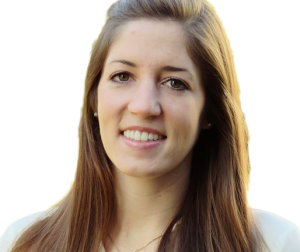
by Center for Teaching and Learning
Samantha Smith, assistant professor in the Department of Cognitive and Learning Sciences (CLS), is this week’s Dean’s Teaching Showcase member. Smith is a member of the Institute of Computing and Cybersystems’s (ICC) Center for Human-Centered Computing (HCC).
Smith will be recognized at an end-of-term event with other showcase members and is also a candidate for the CTL Instructional Award Series.
Dean David Hemmer selected Smith for her innovative course design that takes full advantage of the beautiful Keweenaw.
Smith’s new course, Nature Psychology, centers experiential learning and takes an innovative approach to helping students explore how our mental experience is connected to the natural environment. The course was selected for an IDEA Hub pilot project grant because of its innovative approach to making the subject meaningful to students and because it provides students with an interdisciplinary perspective on the subject matter by connecting them with faculty from a variety of disciplines that engage with the natural world.
Smith’s course features a significant service learning component. After a meeting with Jill Fisher, outreach coordinator from the Keweenaw Land Trust (KLT), the students have designed a pamphlet that will be placed at various KLT trailheads. The pamphlet will explain many of the ways that spending time in nature is good for mental health, physical health and cognitive performance — which should be a good way for them to share the things they are learning about in class. The class is also creating a family-oriented activity with the aim of getting more people out exploring and learning about the KLT and the land they protect.
The course culminates with a nature retreat in the Porcupine Mountains, allowing students to directly experience and reflect on concepts they’ve discussed throughout the semester. To prepare for this retreat, Smith completed an intensive five-day wilderness first responder course over the winter break.
Nature Psychology is not Smith’s first experience with experiential learning. In her Environmental Psychology class, she also takes students outside the classroom to observe psychological principles and practices at play in real-world settings. For example, she brings students on a walkability tour of Houghton and conducts a scavenger hunt at the A. E. Seaman Mineral Museum to explore the design of educational environments. Student and peer evaluations of these courses have highlighted their excellent organization and pacing through a combination of demonstrations, discussions, individual and small-group activities, and lecture.
CLS Chair Kelly Steelman says: “Since joining the department in 2019, Dr. Smith has developed a reputation as a high-quality, innovative instructor at the introductory, upper-division and graduate level … and one that excites students enough that they seek out opportunities to provide glowing feedback. In fact, last semester, I had two different students from two different classes stop me on campus to rave about her courses.”
Hemmer includes similar praise in his nomination: “Hiring faculty is one of the best parts of my job. When newer faculty like Dr. Smith quickly make such a positive impact in (and out!) of the classroom, it is truly heartening.”